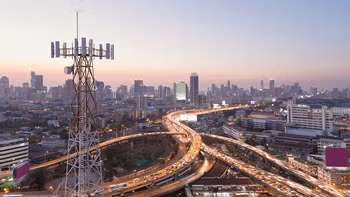After 55 years, Samsung Electronics confronts union strike (it's their first time ever!)

In a historic move, a workers' union at Samsung Electronics held its first strike on Friday, showing employees' growing assertiveness as the company strives to catch up in AI chip technology. The National Samsung Electronics Union (NSEU), representing about 28,000 members – over a fifth of the workforce – organized the one-day strike to demand better pay.
The walkout, although not expected to immediately impact semiconductor production or shipments, adds pressure on Samsung Electronics as it intensifies efforts in AI and narrows the gap in contract chip manufacturing with Taiwan's TSMC, per a report by Reuters. "The purpose of today's strike action is to have a meaningful conversation with management," NSEU official Lee Hyun-kuk told Reuters, adding that the union was preparing further action without providing specific details.
Market researcher TrendForce indicated that the walkout was unlikely to impact DRAM or NAND flash memory production or cause shipment shortages, as manufacturing is highly automated. The strike also appeared to involve more workers from the firm's Seoul headquarters than from production sites and was planned for just a single day.
The strike follows recent worker protests outside Samsung offices in Seoul and a chip production site in Hwaseong, south of the capital. These protests began after Samsung Electronics decided to increase wages this year by 5.1%. The NSEU, the largest of the five unions at the firm, seeks further commitments, including improvements to the performance-based bonus system and an additional day of annual leave.
Last week, a coalition of five unions at Samsung affiliates, including another smaller Samsung Electronics union, called on the NSEU to pursue negotiation rather than confrontation, signaling that they would not join the strike.
Samsung Electronics' run of success is being challenged in some areas, particularly in cutting-edge chips. It recently replaced the head of its semiconductor unit to navigate what it termed a "crisis" affecting the industry.
While facing challenges in its chip business, Samsung managed to dethrone Apple as the top smartphone seller globally in the first quarter, accounting for 20% of shipments, according to research firm Counterpoint.
Samsung Electronics maintained that there was no disruption to production or business activities, noting that the strike followed a public holiday and saw fewer employees taking annual leave than on the same day last year. The union did not disclose the number of members participating in the strike through annual leave. "We have sincerely engaged with the union and will continue talks with them," said a company official.
Market researcher TrendForce indicated that the walkout was unlikely to impact DRAM or NAND flash memory production or cause shipment shortages, as manufacturing is highly automated. The strike also appeared to involve more workers from the firm's Seoul headquarters than from production sites and was planned for just a single day.
The strike follows recent worker protests outside Samsung offices in Seoul and a chip production site in Hwaseong, south of the capital. These protests began after Samsung Electronics decided to increase wages this year by 5.1%. The NSEU, the largest of the five unions at the firm, seeks further commitments, including improvements to the performance-based bonus system and an additional day of annual leave.
Samsung Electronics' run of success is being challenged in some areas, particularly in cutting-edge chips. It recently replaced the head of its semiconductor unit to navigate what it termed a "crisis" affecting the industry.













Things that are NOT allowed: